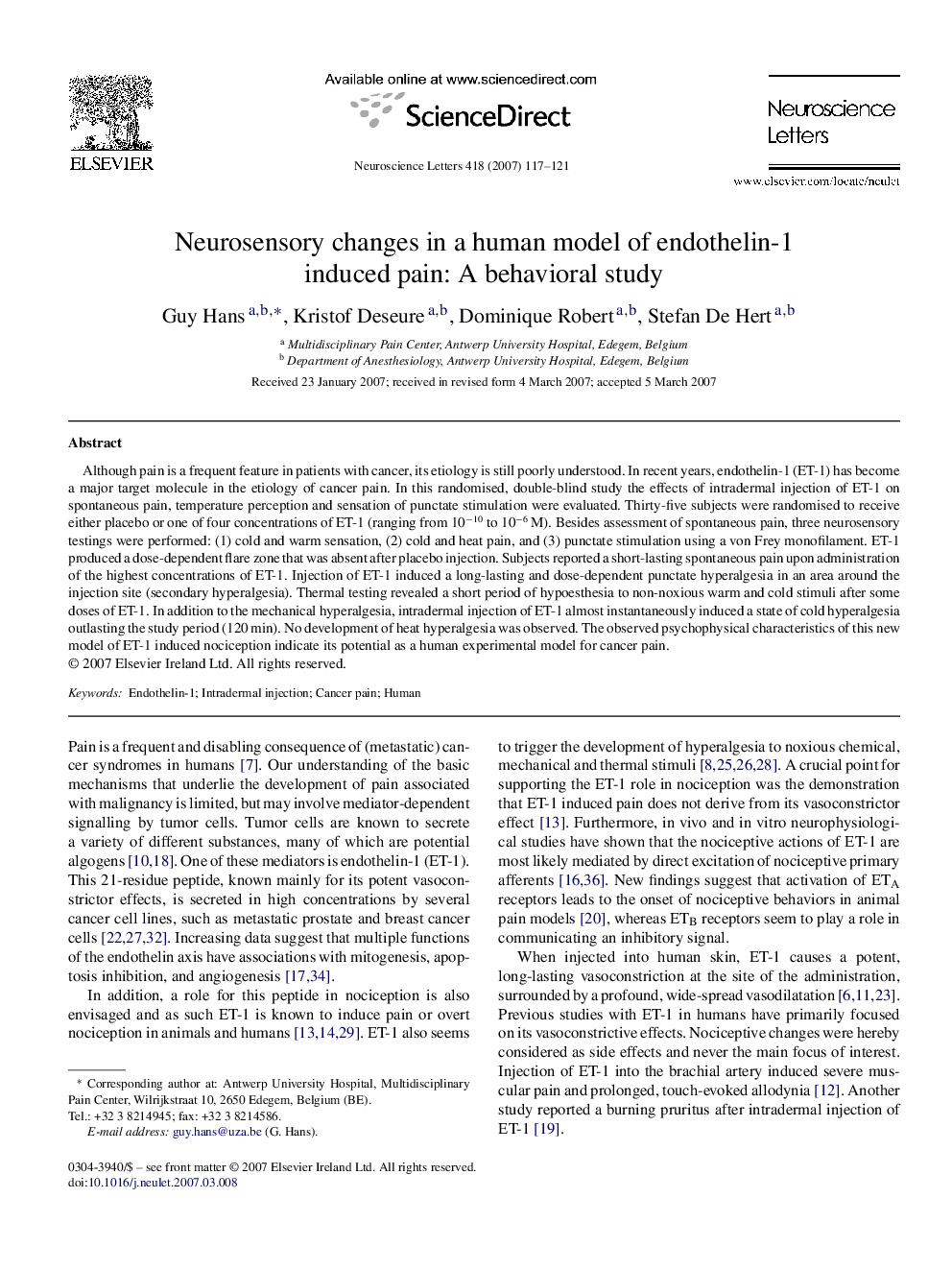| Article ID | Journal | Published Year | Pages | File Type |
|---|---|---|---|---|
| 4349447 | Neuroscience Letters | 2007 | 5 Pages |
Although pain is a frequent feature in patients with cancer, its etiology is still poorly understood. In recent years, endothelin-1 (ET-1) has become a major target molecule in the etiology of cancer pain. In this randomised, double-blind study the effects of intradermal injection of ET-1 on spontaneous pain, temperature perception and sensation of punctate stimulation were evaluated. Thirty-five subjects were randomised to receive either placebo or one of four concentrations of ET-1 (ranging from 10−10 to 10−6 M). Besides assessment of spontaneous pain, three neurosensory testings were performed: (1) cold and warm sensation, (2) cold and heat pain, and (3) punctate stimulation using a von Frey monofilament. ET-1 produced a dose-dependent flare zone that was absent after placebo injection. Subjects reported a short-lasting spontaneous pain upon administration of the highest concentrations of ET-1. Injection of ET-1 induced a long-lasting and dose-dependent punctate hyperalgesia in an area around the injection site (secondary hyperalgesia). Thermal testing revealed a short period of hypoesthesia to non-noxious warm and cold stimuli after some doses of ET-1. In addition to the mechanical hyperalgesia, intradermal injection of ET-1 almost instantaneously induced a state of cold hyperalgesia outlasting the study period (120 min). No development of heat hyperalgesia was observed. The observed psychophysical characteristics of this new model of ET-1 induced nociception indicate its potential as a human experimental model for cancer pain.
